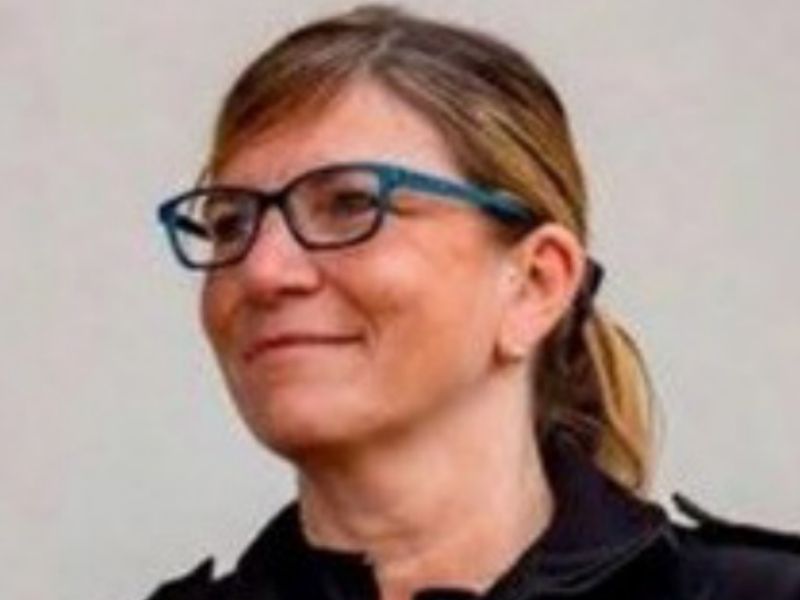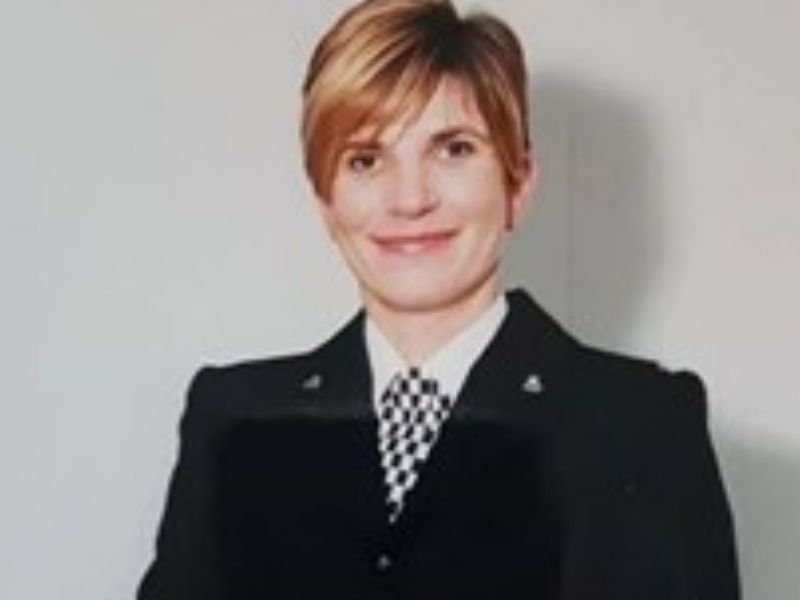Staffordshire Police Federation equality lead Claire Bond has been reflecting on how working conditions for female police officers have improved - and what needs to be done to improve them further - as International Women’s Day is celebrated across the world.
Claire acknowledged how far things had moved forward since she became a police officer in 2001 but said there was still a long way to go to achieve equality across the board.
And she highlighted the recent resignation of Cressida Dick as Metropolitan Police Commissioner and the lack of women in the top jobs as a cause for concern.
She said: “I think one of the saddest things that has happened recently was Cressida Dick being asked to stand down.
“The reason she was asked to stand down is because the Mayor of London said he had no confidence in her ability to lead after incidents which had been brought to public attention of misogynistic views from men within her police force.
“The Mayor mentioned failings following the Sarah Everard murder and other issues were brought to the table but I don’t think that one person can be in charge of such a large organisation and be blamed for a culture that I believe she was working hard to try to extinguish.
“I don’t think she was given enough time to make a change and I think that’s a shame. I really feel she could have led and enforced a massive culture change within the biggest policing organisation in the country and led by example.
“I was quite proud that a woman was leading Britain’s biggest police force as Commissioner and believe that the number of female chief constables has reduced in the last few years.
“There are 50 chief constables in the UK and only nine of them are female. That is only 18 per cent which I feel is very disappointing.”
Claire said that figure, taken alongside Ms Dick’s recent resignation, raised difficult but important questions about how few women were promoted to the most senior positions across the police service in England and Wales.
She said: “I think there is perhaps a case for us to try to do more work around the promotion of women to the higher ranks and I am looking at how we can move forward in making everything as equal as it can possibly be.
“What are the barriers that prevent female officers either applying for promotions or being successful in their promotions and how can we tackle them?
“I know some people will say if you’re up to the job you’ll get promoted to the job but I don’t think it’s that simple.
“I am not saying that anyone should be given any extra assistance but the majority of female police officers are also full-time mums and looking after a family alongside their day job whereas a male police officer aspiring for promotion still tends to be viewed as the main breadwinner and can focus completely on his job.”
Nevertheless, Claire has witnessed a wide range of vast improvements in the two decades since she joined the Force.
She said: “It sounds silly but when I joined Staffordshire Police, male officers wore blue shirts and females wore white shirts.
“That’s all changed now and we all wear the same black nylon, breathable shirts.
“Female officers originally were issued with just a handbag and a whistle - no baton. And then after a time were given a little baton that could fit inside the handbag! Now they are all issued identical kit to male officers.
“So they now think about how a uniform affects us, how firearms affect us - as in the size of the firearm - and they have started to realise that we are asking for adaptions not because we are being awkward or want women’s rights, it’s just that our DNA is different to our male colleagues.”
Claire praised Staffordshire Police for taking action to recruit more female officers over the last few years and said the Force had demonstrated its willingness to strive for equality by looking at ways of assisting women seeking promotion.
She said she was also pleased to see positive changes around the wellbeing of female officers with greater understanding surrounding the menopause now women were working until they were older because of pensions arrangements.
“When I joined 21 years ago the pension was based on retiring after 30 years - less if you were older when you started - but very, very rarely past the age of 55,” she said.
“So if you were 18 when you joined, you’d be 48 before you started thinking about retiring and that was before you’d hit menopausal age but now people are joining later and there’s no age cut off, people are working later so the menopause has to be taken into consideration.”
Claire said there had also been great improvements to certain aspects of maternity leave arrangements for police officers but noted there was still work to do in that area.
She said: “When I had my children you got 13 weeks’ maternity leave on full pay but that is now 26 weeks and people are more likely to take at least a year off from work.
“But I think there is room for improvement when it comes to taking care of people when they are off on maternity leave as in keeping them up to date with things and making sure they are still made to feel included as part of the workforce.
“There is still a lot of work to do around people returning from maternity leave and I suppose that goes side-by-side with ill health or any long-term absence from work and how you fit in when you return because things do change even in a relatively short period of time.”
Claire is about to take over as full-time treasurer for Staffordshire Police Federation for which she already serves as wellbeing lead and equality lead.
Her role as frontline officer came to an end in September 2018 when she suffered serious leg injuries after being hit by a car while trying to arrest a suspect.
She said her injuries and subsequent recovery had enabled her to try to change things that go on in the workplace to do with wellbeing and to make sure that people are not left in a vulnerable position in the way she feels she was.
And in her role as equality lead she expects to come across more stories where colleagues feel they are perhaps not being dealt with fairly.
“There is still a large part for someone to play in taking care of that side of things,” she said.
“But I absolutely loved my whole career and am very proud to be a female police officer and when we celebrated 100 years of women in policing it was quite inspiring to see where we had come from - it is very much like the suffragette story in a way.
“My auntie, who is 84 this year, was a police officer and rose to the rank of inspector and when you hear her talk about it she still talks with pride.
“She had to fight for promotion and she had to fight for her place in each station that she went to, and to be honest had to pretty much expect the way that females in particular were spoken about.
“A lot has changed since those days but I think it is important, especially on International Women’s Day, that we recognise and accept that we still have a long way to go.”










